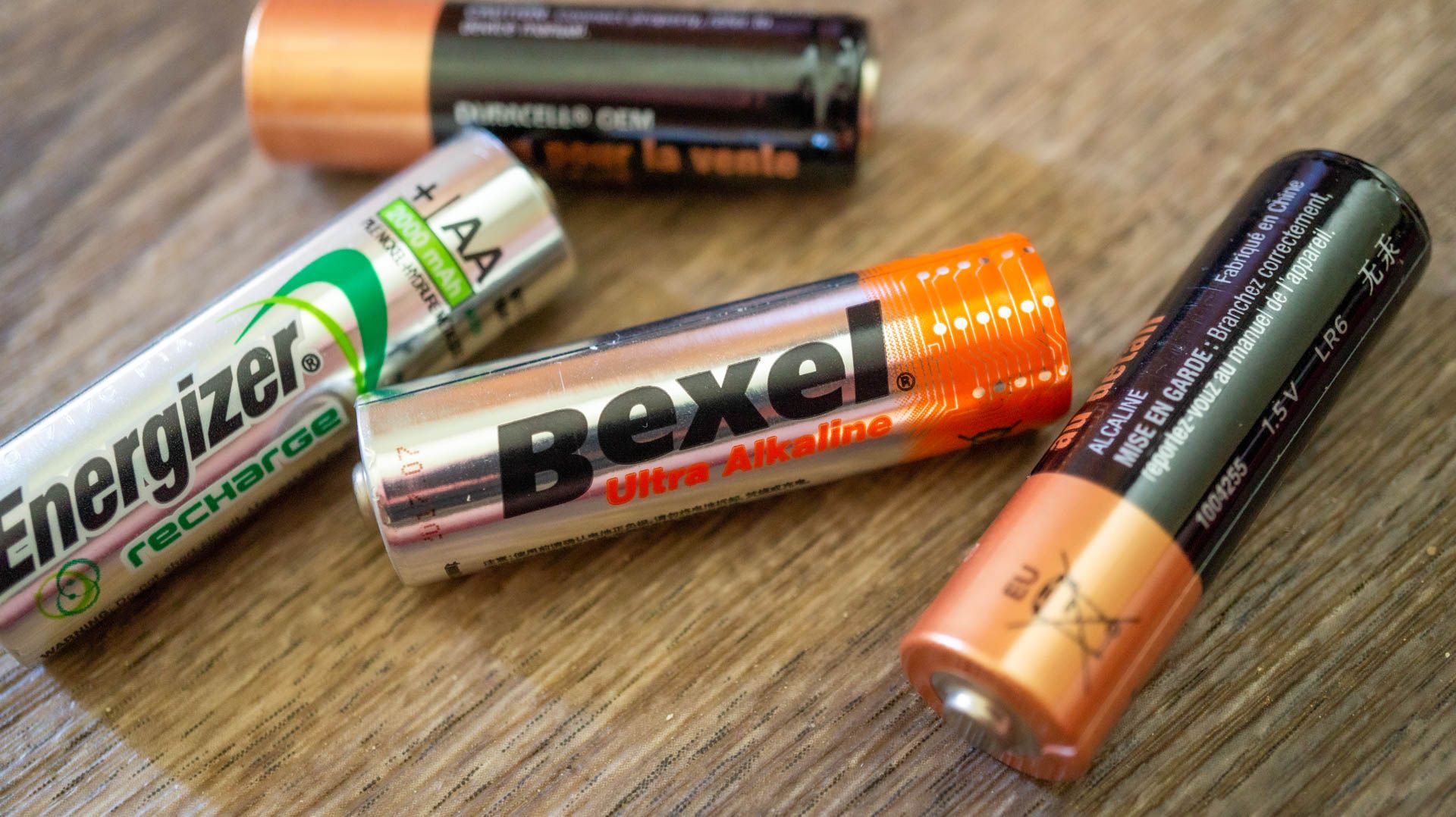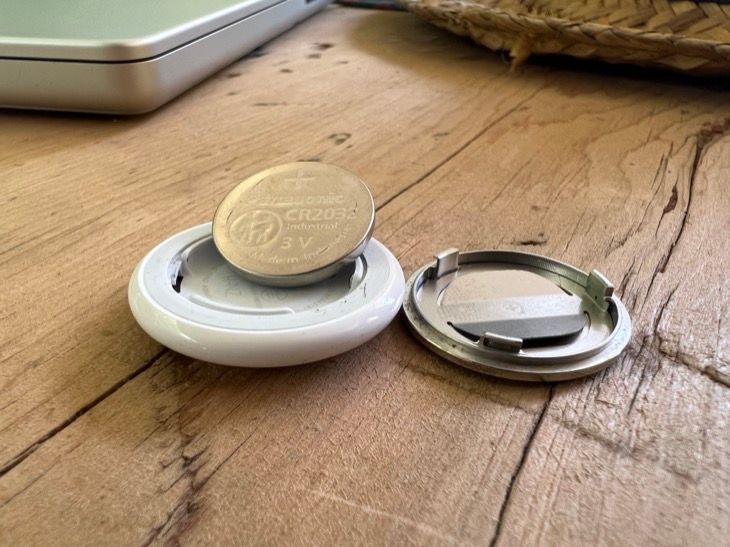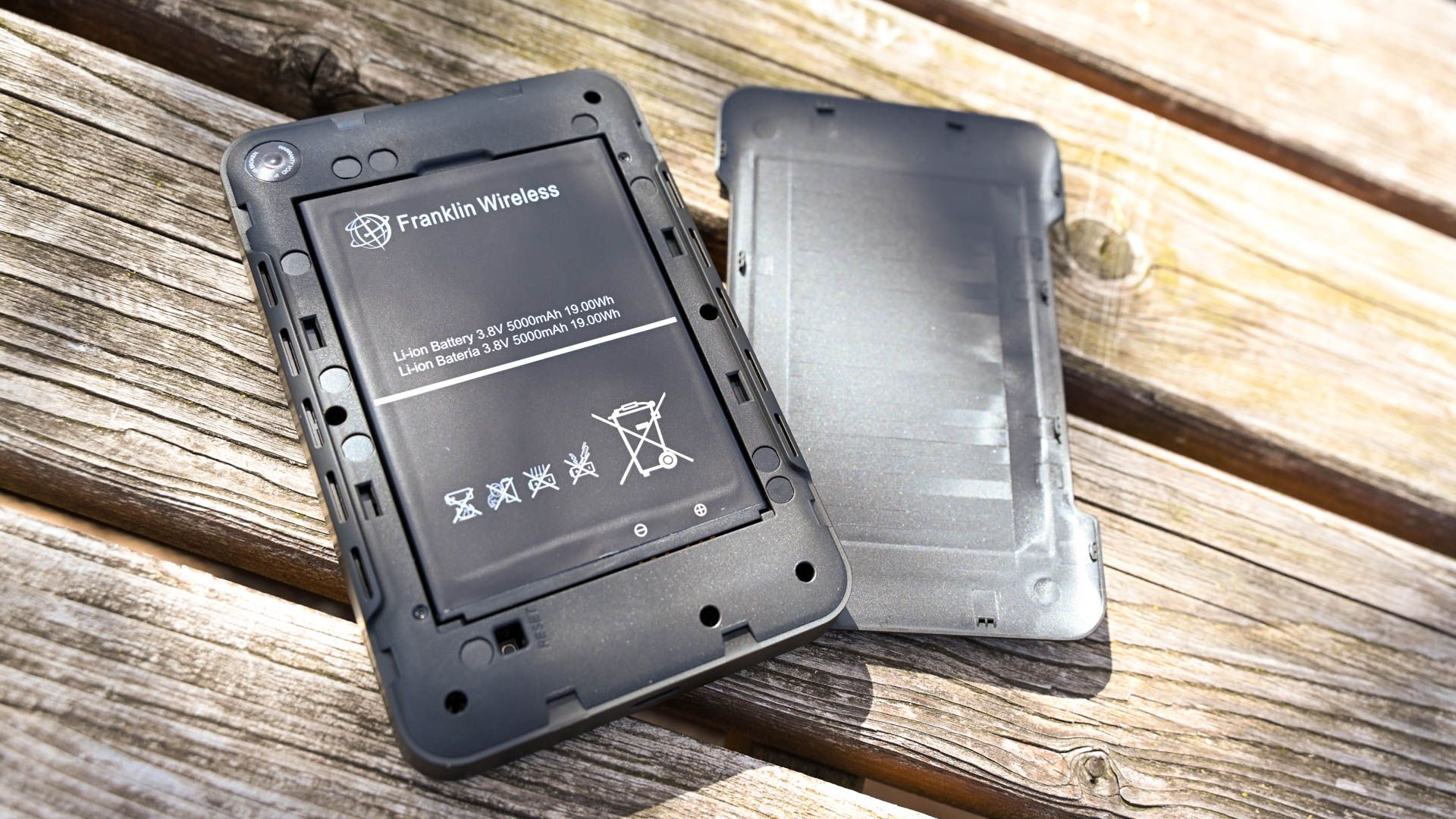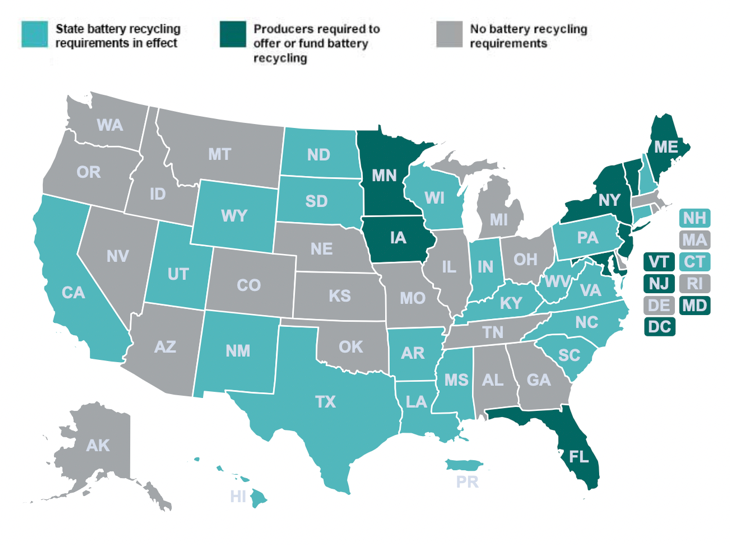Quick Links
Key Takeaways
Recycle your old batteries by first determining what type of battery you have, then using a service like Call2Recycle, Earth911, or GreenerGadgets, to find a local recycling drop-off, pick-up, or mail-in program.
There are many reasons you should be recycling unwanted batteries. Throwing batteries away can impact the safety of you and others, harm the environment, and is wasteful of metals that can be reused time and time again.
How and Where to Recycle Disposable Batteries
The best and most convenient method of recycling batteries will differ depending on where you live. Different states, counties, and cities have different options for accessing recycling services. Which service you end up using largely depends on what you're trying to recycle.
The first step is to work out what type of battery you're disposing of. This should be written clearly on the side of the cell (or the top of the cell, in the case of button or coin batteries). Look for descriptors like "alkaline," "lead-acid," "lithium," "nickel cadmium," and others since not all recycling locations accept all types of batteries.
Cylindrical (AA, AAA, C, D) and rectangular batteries may be alkaline, lithium (which is different from lithium-ion), zinc-carbon, nickel-cadmium (NiCd), or nickel-metal hydride (NiMH). Some button or coin batteries (like CR2032 used in Apple AirTags) are lithium, while others (like the common SR44/LR44 watch battery) use silver oxide or alkaline cells.
With this information in hand, you can use a service like Earth911 or Call2Recycle to search for appropriate recycling facilities in your area. These may require that you drop off the batteries at a municipal site or retailer, leave the batteries out for collection on a specific day or date, or mail in batteries in prepaid packaging. Energizer has a recycling location locator you can use which works largely the same way.
Many local authorities recommend calling ahead of any pickups to ensure that they accept the battery type you're hoping to recycle. If you're hoping to use a collection service, check the current schedule on the local authority website before leaving batteries outside.
Many drop-off services offer battery recycling for free, while some sites require a small charge. Mail-in battery recycling programs are more convenient, but you'll pay for the service, with services like WeRecycle starting at $44.95 for the smallest mail-in option. Packaging is normally fire retardant and may include other means of making batteries safe for temporary storage and transit.
Recycle Items that Contain Rechargeable Batteries
You can recycle your old smartphones, laptops, and even USB battery banks at most e-waste recycling centers. You'll find these on websites like GreenerGadgets, Earth911, and Call2Recycle. The EPA also has a list of Certified Electronics Recyclers on its website.
Many stores also offer recycling services for devices that include built-in rechargeable batteries. This includes Staples, Lowe's, Home Depot, Apple, and Best Buy to name just a few. These retailers will take your gadgets and recycle them for free, even if you didn't purchase from them in the first place (yes, even Apple).
Remember to always wipe your personal data from a device that you intend to dispose of. Many old gadgets that seemingly have no resale value can be donated and recycled or refurbished, so they may be useful to someone.
Why Recycle Your Old Batteries?
Throwing batteries out in the trash can be dangerous. Spent cells can spark and cause fires, or even explode. This can cause harm to you or your family, be a health hazard to those who have to handle your trash, or cause damage to your home and other equipment. News stories about garbage trucks catching fire due to improper battery disposal are surprisingly common.
Even if batteries reach landfill safely, they can still cause severe environmental damage. Batteries of all types use harmful heavy metals and other environmentally unfriendly materials that leech into local water supplies and soils.
Recycling may be an energy-intensive process, but that doesn't mean it's not worth doing. The switch to electric vehicles is ushering in a new wave of recycling efficiency, with new electrochemical recycling processes promising over 96% efficiency in terms of extracted cobalt, lithium, manganese, and nickel. That's good, but as consumers, we still need to make sure batteries enter the recycling chain in the first place.
Reclaiming materials found in spent batteries reduces the need to mine and refine more. It also makes economic sense, with some reports suggesting it costs 13 times more to mine metals from raw ore than it does to recover them from e-waste using "urban mining" techniques. Some of these are classed as "critical minerals" by the US government.
A critical mineral is defined as: "a non-fuel mineral or mineral material that is essential to the economic and national security of the United States, that has a supply chain vulnerable to disruption, and that serves an essential function in the manufacturing of a product."
Finally, many recycling drop-off points are located in stores you probably already frequent regularly, and your local government probably already has a scheme in place that you can take advantage of.
Can You Throw Away Batteries?
Some states allow you to throw away certain types of batteries, but that doesn't necessarily mean you should. Others have mandatory recycling regulations in effect, which prohibits throwing batteries out in the trash by law. You can check on the status of the law wherever you live on the Call2Recycle website.
For example: in California, all single-use batteries must be recycled or taken to a household hazardous waste disposal facility or similar. Other states like Texas and Virginia only have laws governing the disposal of lead-acid batteries.
Even if your state doesn't mandate that batteries are recycled by law, choosing to recycle is the more responsible choice.
What Not to Do With Old Batteries
Outside of not throwing used batteries in the trash, you should also take care not to leave old batteries inside a device for extended periods. Old batteries tend to leak, which will cause damage to your devices. This can cause the contacts to corrode so that your devices no longer draw power correctly.
Leaky batteries can be difficult and hazardous to handle, so make sure you recycle them before they pass their use-by date. If you're storing a battery-powered item for an extended period, make sure that you take the batteries out first. This can also be true of rechargeable batteries, though these can be harder to remove than disposables.
If ever you notice that a rechargeable battery within a device (like a smartphone, laptop, or tablet) has started to bulge, make sure you take care to dispose of it carefully and correctly. Batteries that are bulging could potentially explode and cause serious harm and long-term health effects.
Finally, make sure you don't throw batteries in a fire since they will explode. Lithium-ion batteries are particularly dangerous when exposed to flame.
Recycle Your Old Gadgets Too
Your old gadgets could be a fire hazard, so make sure that you store, inspect, and dispose of them correctly. If your gadgets aren't too old you can use trade-in programs like Amazon Trade-In, Apple Trade In, or sell them yourself so that you don't have to worry about them sitting around.




